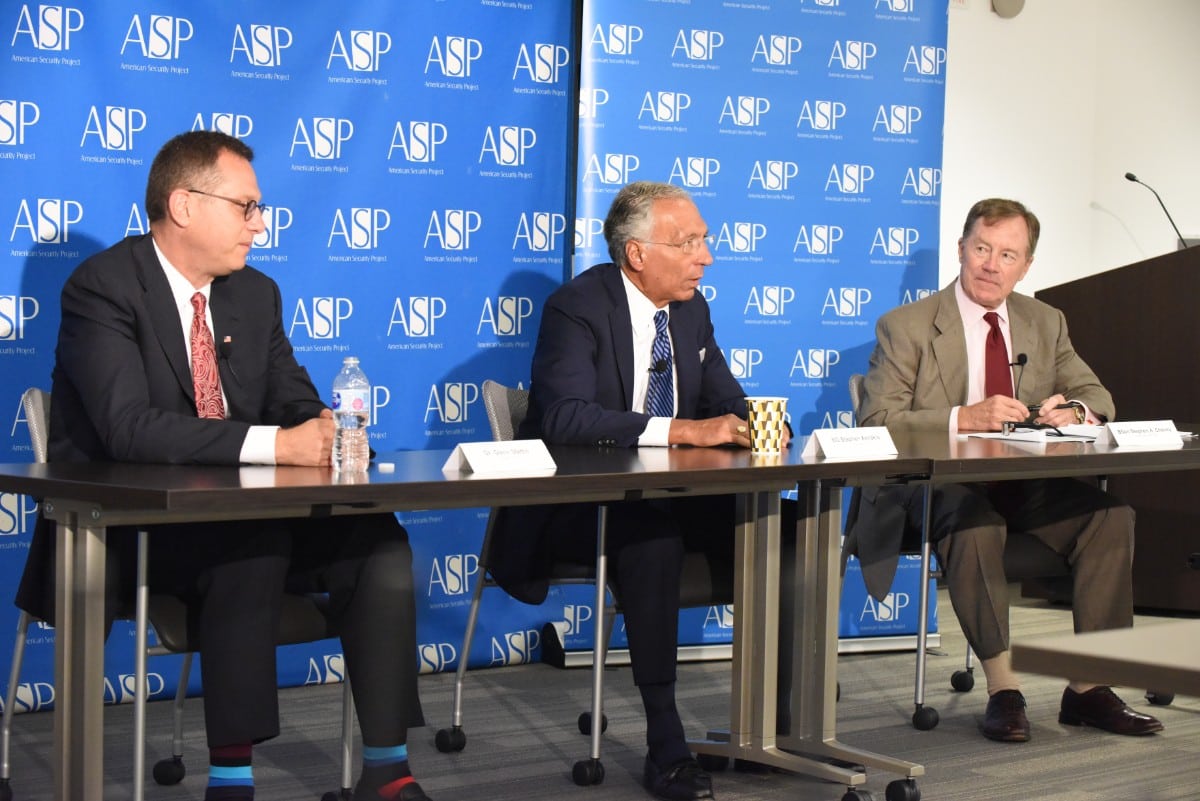
Event Recap: Obesity and National Security
Podcast: Play in new window | Download
Subscribe: Apple Podcasts | RSS
ASP’s CEO BGen Stephen A. Cheney, USMC (Ret) and BG Stephen Xenakis, USA (Ret) discussed the findings of their report, Obesity and National Security: Meeting the Recruiting Challenge, on Thursday, September 6, 2018. Express Scripts Chief Innovation Officer Dr. Glenn Stettin was an additional panelist who discussed the private industry’s role regarding the topic.
Cheney began by describing how recruiters struggle to find able and ready young men and women to enlist. A main culprit? Obesity. Many youth applicants cannot meet the strength test requirements. Cheney stated roughly 70% of young Americans aged 18-24 are unqualified for service in the military for a variety of reasons, including the physical demands of boot camp and beyond. This leaves recruiters with a small pool of just 30% to find new recruits. Within recent years the number of new recruits expected to join nearly doubled to 86,000 people per year. In return, this puts even more stress on recruiters. Thinking towards the future, Cheney believes a solution to the problem is to involve young adults in more physical activity. This may include expanding and strengthening the JROTC program nationwide to promote physical fitness and implementing nutritional programs in schools to encourage healthy eating habits.
Xenakis continued to describe how this is not just a military readiness problem, but also a public health concern. “For the country at large, the military is a microcosm of our communities and what we do here and what we see here really informs us of what’s going on across the board.” The health of the recruiting pool reflects what is happening in schools, communities, families, and neighborhoods. It’s a direct reflection of the common health of America. During his career in military medicine, Xenakis has seen firsthand how well soldiers preform when they feel healthy. He found service members who feel healthier are more disciplined, committed, and better at their jobs.
Stettin also believed obesity to be a public health issue. Representing the private industry, Stettin weighed in on the calorie counting issue. He explained how easy it can be to drink empty calories from soda and sugary drinks without acknowledging the consequences. While craving sweets is a normal human behavior, Stettin stressed the importance of a healthy diet and daily exercise. Stettin discussed a solution to meet the recruiting challenge. In addition to promoting physical activity and healthy eating to young Americans today, Stettin mentioned a practical approach to expand the recruiting pool would be to involve as many people as possible. “If we want to have a large and secure pool of people from whom to recruit, we should consider everybody who loves this country who otherwise meets the standard.” Regardless of background, if the applicant is willing, able, and ready they should be allowed to enlist and serve.
The panelists recognized the serious consequences obesity has on military readiness and America’s general health. Obesity is a dynamic, indiscriminate problem that needs to be addressed. This includes educating young adults and children about healthy living habits and encouraging all qualified individuals to serve. As Cheney said, “If you can’t man the force, we can’t deploy them, we can’t defend ourselves and that’s a very simple equation.”





